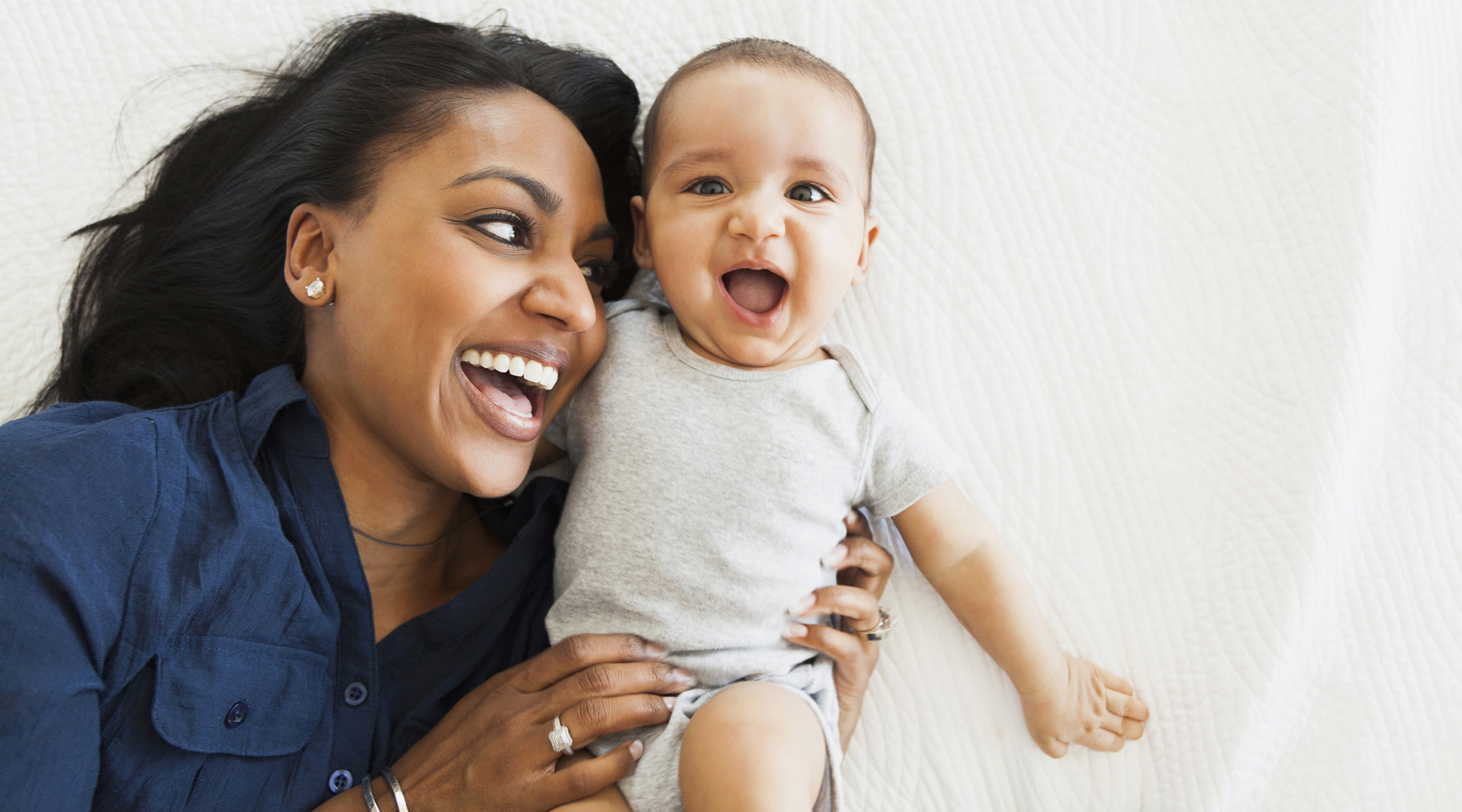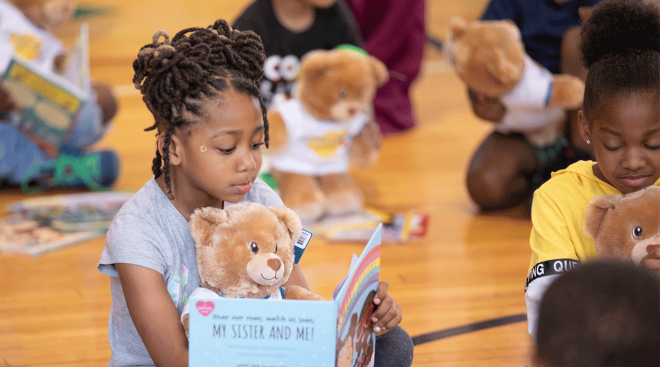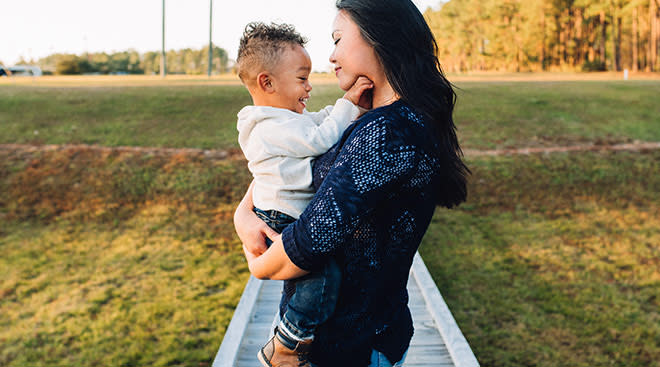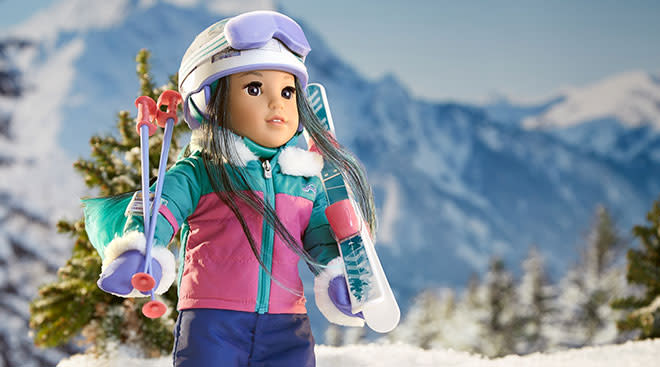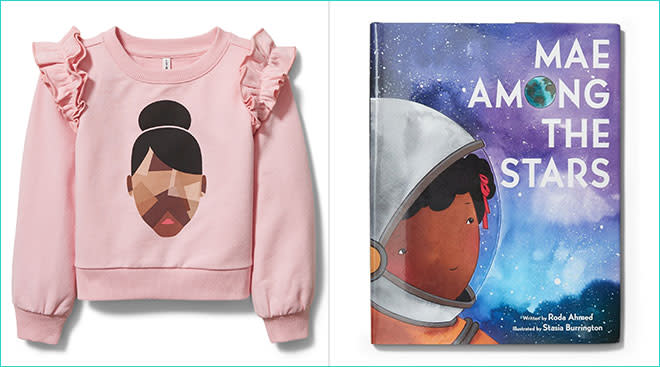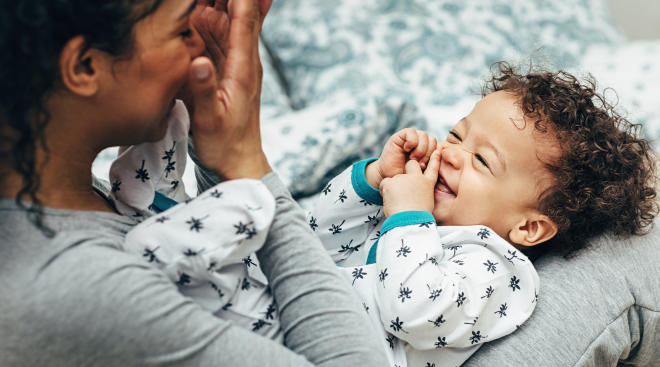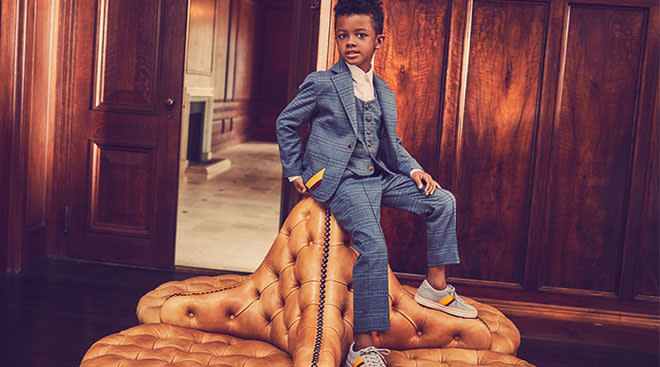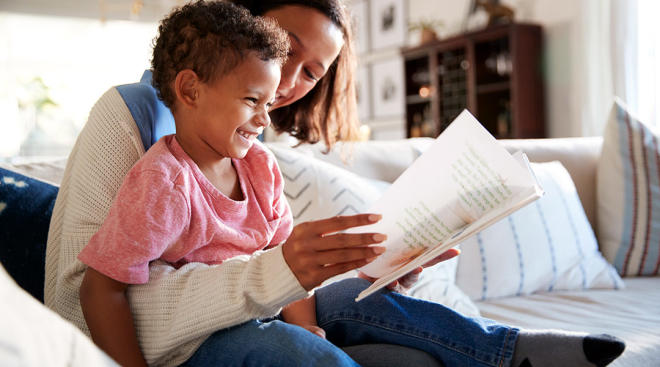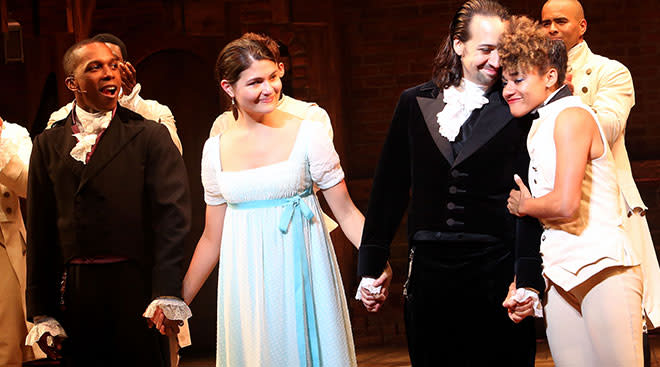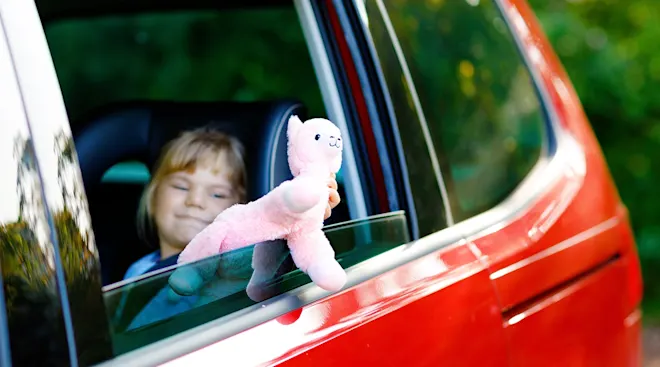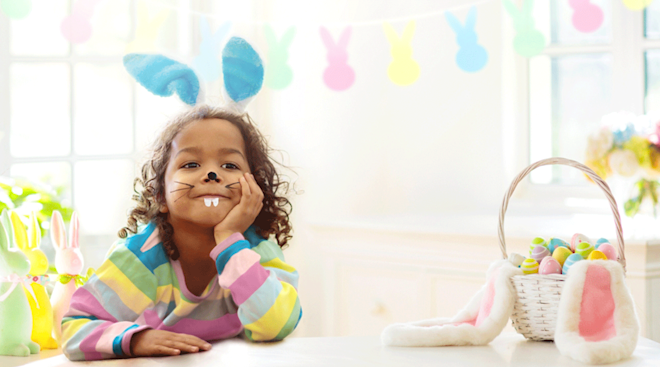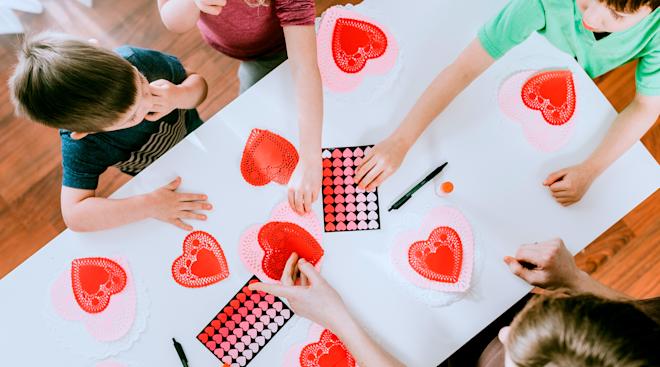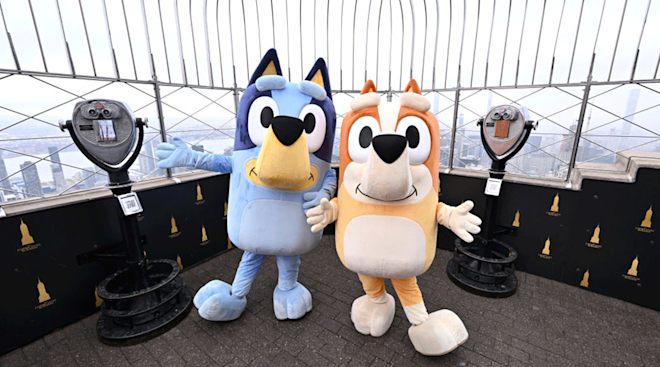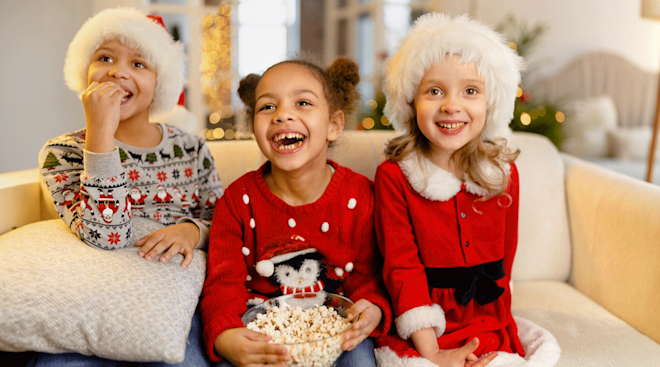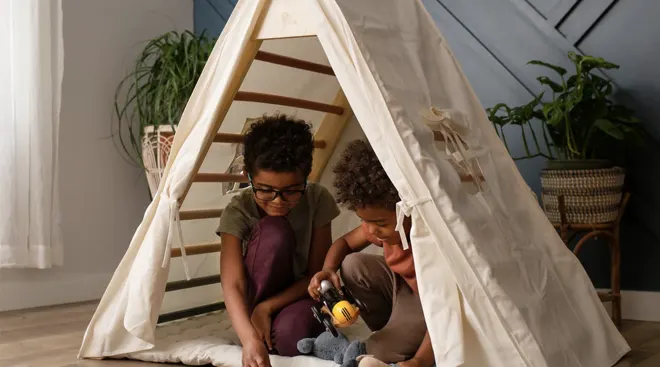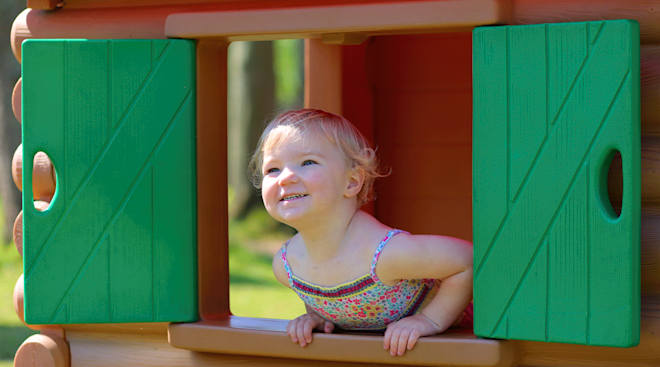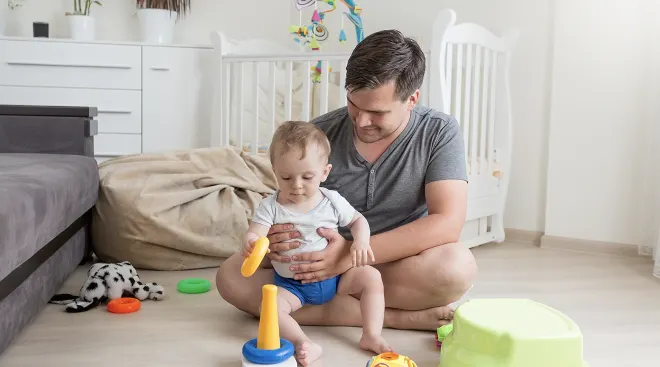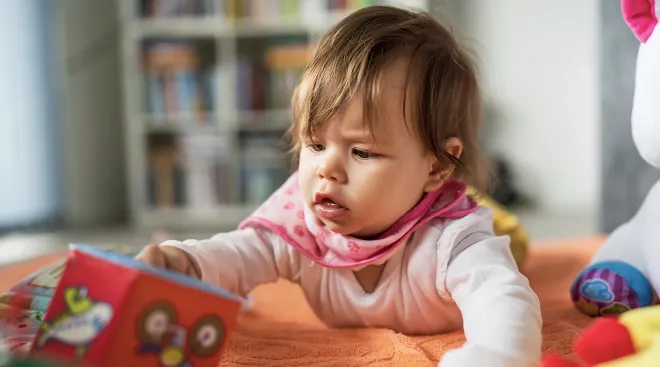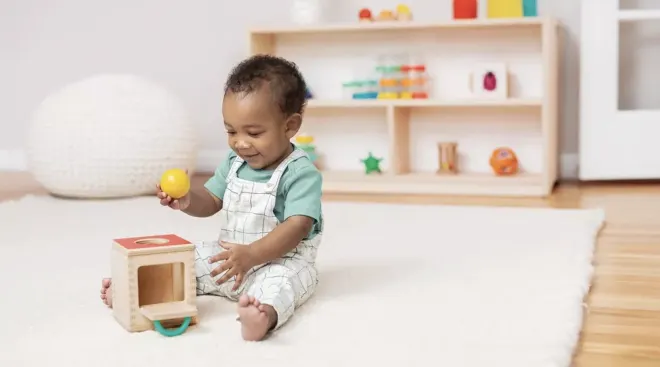How to Perfect Your 'Baby Talk' to Boost Baby's Speech Development
Every parent looks forward to hearing their child utter their first word—but babies don’t typically start talking until they’re about a year old. It may seem counterintuitive to talk to a baby who can’t yet talk back, but studies have shown parents can greatly help with baby’s speech development by talking to them and responding to their eventual babbling. Wondering what the benefits are of talking to a preverbal baby, and how to start? We asked two experts for the lowdown on why and how to talk to baby.
Experts agree that parents should start speaking with baby long before they can talk back—as early as when they’re still in the womb. “Babies begin to pick up on the sounds and tones of the home language, and respond to familiar voices and music,” says Jocelyn M. Wood, a bilingual speech language pathologist based in New York City.
Kathy Hirsh-Pasek, a professor of psychology at Temple University and author of How Babies Talk and Einstein Never Used Flashcards, agrees, adding that even if baby can’t say actual words yet, it’s crucial to start having “conversations” when they’re an infant. The conversation skills they develop as a young baby can predict early language ability and even how well they’ll do in school.
As baby grows, they’ll start to pick up on your reactions when they make certain sounds and gestures. Several studies over the past decade have also found that early parent communication, specifically in “Parentese”—a “sing-songy style of speaking to babies that really highlights intonation and vowels,” Wood explains—can have numerous benefits on infant speech and sound development.
One 2013 study found that babies learned new words better when spoken to in Parentese than when parents pointed out the objects in their regular adult voice. Babies’ responsiveness to “sing-song” voices was also proven in a 2017 study that found babies respond more to moms than to dads for the same reason. A more recent 2020 study from the University of Washington found that 6-month-old babies who were spoken to in Parentese went on to have larger vocabularies by 14 months old.
Wood explains that, because the areas for language development and music overlap in the brain, experts know music and melodies are big tools for helping a preverbal infant’s speech development. “All languages have melodies and tones that are unique, and babies start to key into these differences early on,” she says. “Parentese capitalizes on these strengths by using a high-pitched, sing-songy voice and simplified speech. By doing this, the speaker can draw attention to the sounds of a language and word boundaries, making it easier for babies to capture individual words that will later become their vocabulary. So even if it does sound rather silly when you’re doing it, Parentese/baby talk works!”
While experts agree on the benefits of talking to baby in Parentese, you may be wondering exactly how to go about it. One simple way is to incorporate storytime into your routine. Read children’s books to baby, and point to the different illustrated objects and say their names out loud for baby to hear. You can also narrate the activities you do together in daily life. “It can be hard to know what to ‘do’ with young babies, but parents can focus on narrating what they’re doing (diaper changes, things they see on the walk, preparing bottles), using songs and fingerplays and using Parentese,” Wood says.
Once baby is a little older and begins to babble, parents can start to respond. Below, some more tips and tricks on how to chat with your babbling baby.
Take turns
Baby may not be able to talk, but they can hear, move, spit and maybe even grunt. Take that and roll with it. “Have conversational duets. You say, ‘What did you say? Right—you just moved your arm!’ It will come as naturally as if you’re singing a song with your baby,” says Hirsh-Pasek. You can talk about baby’s funny faces or movements, or about whatever they’re looking at. Just remember to give them a turn to respond, since the back and forth is key. “Contribute as much as baby is, and have them contribute as much as you are. Don’t take over—that way it’s a duet, not a solo,” she continues.
Talk crazy if you want
You’ll probably want baby to pick up some real words eventually, but it’s okay to babble, baby talk or just make crazy noises if you feel the urge. “It’s absolutely fine. Remember: Our children are seeping up so much. And part of what they have to seep up is the turn-taking,” Hirsh-Pasek says.
Wood explains that this can be as simple as adding to the babble baby says. For example, if baby says, “bababa,” you can respond with “babamama,” she says. “When you notice more babbling, you can start to apply those sounds to actual words. So when baby says ‘bababa’ you can say ‘Oh, you want your BOTTLE’ (depending, of course, on the context of where you are). Once babies start to use single words to communicate, parents can adjust their communication style by using simpler utterances. If baby is using one word, you can respond with two to three. When baby uses two words, you can respond with three to four.”
Above all, respond
Like many others, a 2014 study, by the University of Iowa and Indiana University, found that babies’ language skills advanced sooner if their moms responded to their babbling more often. So if baby “goo-goos” all by themself, say something—even a “ga”—right back.
It may feel silly at first, but you and baby will find a “conversation” rhythm really soon. Even if baby isn’t chattering away just yet, know they’re watching, learning and en route to saying their first words.
Talking to baby is a great way to influence their speech and language development. But if you suspect baby might have trouble hearing, it’s important to seek support right away. Identifying hearing issues early on can help you find the right resources and next steps for your family. Learn more at HearingFirst.org.
About the experts:
Kathy Hirsh-Pasek, PhD, is a professor of psychology at Temple University, as well as the author of several books that deal with early childhood speech development, including How Babies Talk and Einstein Never Used Flashcards. She is a fellow of the Cognitive Science Society, the American Psychological Association and the American Psychological Society, among others. Hirsh-Pasek earned her PhD in psychology from the University of Pennsylvania.
Jocelyn M. Wood, MA, CCC-SLP, is a New York City-based bilingual speech language pathologist with over a decade of experience. She specializes in working with parents who are seeking advice on how to introduce speech and language activities into everyday routines. To learn more about her six-week virtual parent coaching program, visit tinytalkers.jocelynmwood.com or find her on Instagram @speechwithjwo.
Please note: The Bump and the materials and information it contains are not intended to, and do not constitute, medical or other health advice or diagnosis and should not be used as such. You should always consult with a qualified physician or health professional about your specific circumstances.
Plus, more from The Bump:
Navigate forward to interact with the calendar and select a date. Press the question mark key to get the keyboard shortcuts for changing dates.
































